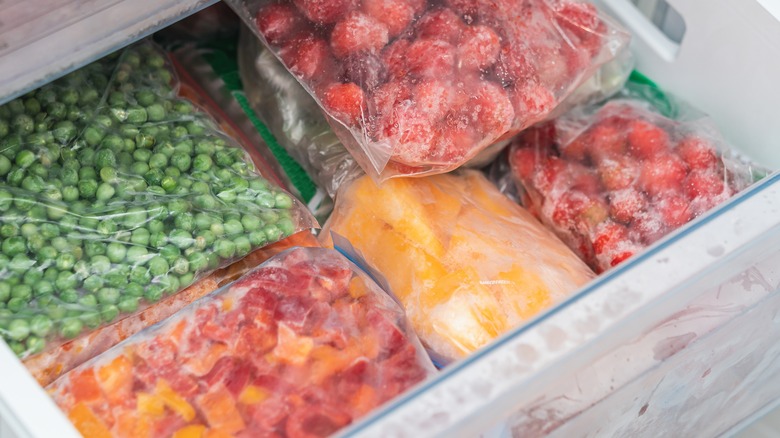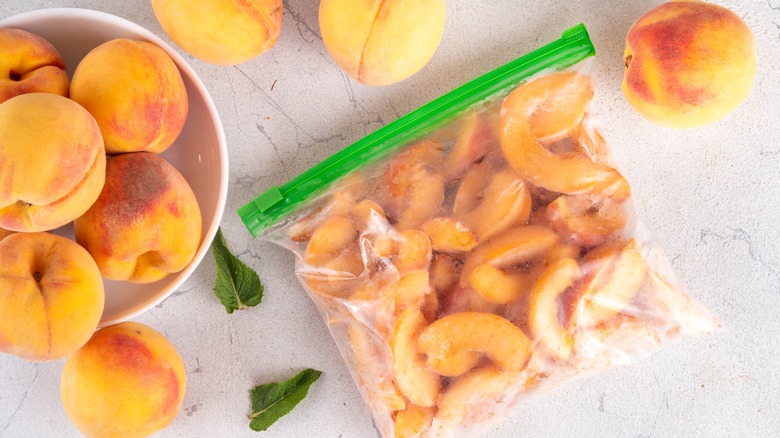One Trick For Saving Money At The Grocery Store Can Be Found In The Freezer Aisle
The cost of living is going up like nobody's business — except that it is literally everybody's business. Thanks to rising inflation, your hard-earned paycheck is not stretching as far as it used to. Couple this with the tremendous food waste statistics in the United States, and you've got a recipe for disaster. The U.S. Environmental Protection Agency issued a report on food waste in 2021, detailing that one-third of food is prematurely thrown out, with fruits and vegetables hitting the can most often. The good news is, frozen produce might be the solution to both problems.
When you crunch the numbers, frozen produce is not that much cheaper than fresh. Still, it's anecdotally seen as a money-saver — why? What consumers are tapping into is the fact that fresh produce, in part or in whole, will almost always end up in the trash, while you virtually never throw away frozen produce. Take the family-favorite frozen broccoli, for example. Fresh broccoli lasts up to five days in the refrigerator (with proper sealing), but frozen broccoli will last up to eight months! With frozen produce, you don't feel the pressure to eat it or toss it like you do with fresh. You may have to spend more upfront to fill your freezer, but your grocery list will shrink for the following months, saving you money in the long run.
The health benefits of frozen fruits and vegetables
Fruits and vegetables are picked and frozen at their nutritional peaks. While vegetables lose some of these nutrients in the blanching phase of the freezing process, the produce still maintains the majority of nutrients. Fruits lose almost no nutritional value because they aren't blanched. This means that whether you enjoy these items straight after purchasing or months later, their nutritional value will remain the same. Contrast this with fresh produce, which can go from perfect to wilted in a matter of days, right before your eyes. Food chemists have tracked the decline in nutrients and vitamins between frozen and refrigerated produce, and concluded that not only does frozen produce maintain its vitamins and minerals, but it even surpasses the refrigerated alternatives.
Frozen produce also allows you to get the full spectrum of nutrients year-round, which isn't always an option with fresh fruit and vegetables as they're more subject to seasonal growing patterns. However, one thing to be on the lookout for when buying frozen produce is added sauces or sugars that can compromise those nutritional benefits. Gene Lester, long-standing employee of the U.S. Department of Agriculture and plant physiologist, told CNN that unless you're planning on eating fresh produce on or around the day of purchase, you're better off buying frozen as far as nutrient-retention and freshness is concerned.


